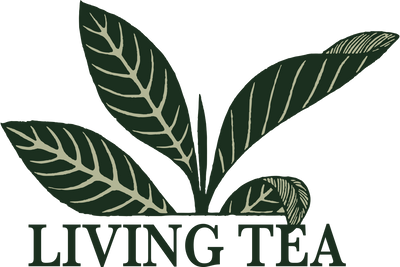Pausing Into Awareness
Our lives are full of motion, obligations, and distractions. Pausing — even briefly — gives us a chance to notice what is happening within and around us. This week, we explore how slowing down can reveal patterns in our attention, our habits, and the ways we give to others. In tea, in our relationships, and in daily life, small pauses open space for presence, awareness, and thoughtful action.
Pausing allows the mind and body to settle, creating space to notice what is already present. This week, we invite you to notice the space between each step of making tea. From placing the leaves in the pot to lifting your cup, pause. Let each moment stretch just enough to feel the body, the breath, and the sensations around you. These pauses guide you back to presence and allow awareness to settle before moving forward.
Here’s a simple practice for noticing one of the many pauses you can take within your tea ritual:
Preparation: Set your chaxi (tea stage) with care. Move slowly, letting each movement and gesture invite you into the present moment.
Pouring: As you pour water over the leaves, watch the steam rise, feel the warmth, and breathe in the aroma.
The Pause: Before lifting the cup, gently ask: “Am I aware?” Do not answer with thought — simply notice awareness itself, the space in which sensations, sounds, and stillness appear.
Drinking: Take a sip. Feel the warmth move through your body. Notice taste, texture, and breath. Rest as the awareness in which all of this unfolds.
Completion: When you set the cup down, pause again. Recognize that this same awareness is present in every moment of your life.
Journaling: After your tea, open a journal. Note what arose in your awareness during practice. Were you able to rest in presence? What tends to pull you out — thoughts, distractions, emotions? Tracking these subtle shifts over time strengthens your ability to rest in presence, even outside of your tea practice.
Five Element Insights: Earth + Community
The Earth element thrives in care, service, and generosity — but giving too much without nourishing yourself can leave you depleted. Balanced habits honor both self and others, creating reciprocity in everyday life.
One way to practice this balance is to replace a habitual response with a mindful one that serves both you and those around you. For instance, when stress tempts you to scroll mindlessly, pause and do a short meditation instead. Notice how this shift affects both your inner state and your interactions.
Journal prompts:
- What am I getting out of this habit?
- What would I gain in changing it?
- How can caring for myself benefit others in a meaningful way?
Over time, observing these patterns can deepen your understanding of how your habits shape your energy and the ways you show up for others.
What We’re Drinking
This month, the team is savoring Forest Lamp, a Sheng Gongsi Red Mark Shou Puerh, 2001, selected from Colin’s Vault and featured in the Puerh Tea Club for August. Bright and sweet, it’s lighter than many shou puerhs but still full of flavor. Imagine tasting spring water, squash blossoms, green beans, and a faint citrus peel that lingers on the back of the tongue. Its energy is cheery, uplifting, and relaxed — a tea that invites long, unhurried sips and deep breaths.
Forest Lamp earns its name from the light it brings to quiet moments. While we seek the way, the way also seeks us. In the quiet recognition of this moment, the Lamp illuminates, reminding us to move through our day with presence and openness. It’s perfect for afternoons when we want a gentle lift without being overstimulated, and its subtle complexity unfolds beautifully over multiple steepings.
Current Inspiration
We’ve been revisiting Sam Harris’ Waking Up, a book for those drawn to mindfulness and spirituality without religion. Harris, a neuroscientist and philosopher, explores the nature of consciousness and the possibility of self-transcendence — the sense that the discrete “self” can be shifted, expanded, or even temporarily dissolved.
Waking Up blends memoir, science, and contemplative practice. Harris invites readers to notice the mind’s habitual patterns, understand the nature of awareness, and explore meditation as a rational practice. The book is a bridge between secular inquiry and spiritual insight, demonstrating that self-transcendence need not be religious or mystical to be real and transformative. Paired with your tea practice, it offers a guide for gently observing the mind while resting in the present.
Friends of Living Tea
This week we're highlighting our longtime friend, Hermas Lassalle. Hermas is a transformational counselor, life coach, astrologer, and business consultant devoted to helping people live consciously and empowered. Drawing on his expertise in astrology, Hermas offers a lens for exploring limiting beliefs and unresolved patterns, helping others reclaim the power to rewrite the narratives that shape their lives.
Hermas has been featured on radio, podcasts, and television, working with individuals, families, and professionals to cultivate personal growth, deepen relationships, and foster conscious awareness. Based in Ojai, California, he continues to guide people inward, helping them access wisdom, embrace self-discovery, and walk a path toward wholeness.
Work with Hermas:
h@lassallecoaching.com
lassallecoaching.com

